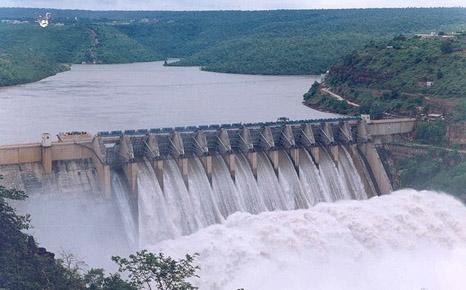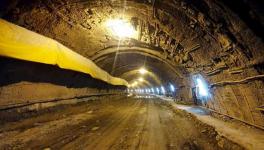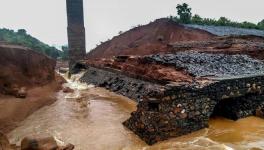Hydro Power Policy Change: BJP Aiming for Short-term Political Gains?

Against the backdrop of a number of stalled projects, the BJP government is making a last-ditch effort to put in place a policy to promote hydro power. After the government’s Rs 16,000-crore bailout package to the hydropower sector, proposed in June this year, the Centre is now hoping to give a boost to projects of close to 10 GW to either restart or commence the construction.
The proposed changes to the existing policy are currently at the stage of ministerial negotiations, and are likely to get Cabinet’s nod soon. The policy – hoping to gain fresh investments in the sector – is likely to do away with the mandatory principles of creating irrigation facilities, creation of allied assets, or any social infrastructure in order to bring the costs down.
The BJP government has been adamant about reviving the sector, stating that this will ensure the generation of peak power [peaking power refers to electricity use at its highest points during a day] . Speaking to Newsclick, Himanshu Thakkar of the South Asia Network of Dams, Rivers and People, calling the policy a suicidal move said, “The policy is being introduced in order to flog the dead hydro power projects. The government is essentially barking up the wrong tree with this policy. Under the present framework, environment clearances are flouted,
public hearings are for namesake. In a scenario like this, this policy, if it takes shape, will only make the matters worse.”
Shedding light on the risks associated with the move, he added, “It can be seen from Minister Piyush Goyal’s statements that the government itself is not sure about the viability of these projects. It precisely implies subsidising an already subsidised market at the cost of the poor people and the environment. No private company is keen on taking up these projects. The private companies that did, have tried to push through bailouts with the help of the government. When other types of electricity such as solar is being manufactured at much cheaper rate, why would people invest in hydro power?”
With efforts being made to revive the sector, the approval of the Cabinet is being sought for introducing a separate ‘hydropower purchase obligation’ category. To reduce hydro power tariffs, the ministry also wants the Cabinet to approve, modify existing norms, and not let the host states receive free power from hydro power plants till five years from commissioning. As per existing provisions, developers have to contribute 12 per cent free power to state governments. Shripad Dharamadhikari of Prayas Energy Group said, “The case of this policy is curious; the bigger issue here is why would they want to do this, and modify existing norms and be unfair to the host states? To us, the move primarily seems political to show that massive development work is taking place. Elections are coming up, and they (the BJP) want to benefit either the big contractors through such moves, or primarily enjoy its short-term political gains.”
He explained that the growth of the hydro power sector has been glaringly slow in the last few years, mostly because of its high cost. It may look like the government is trying to push through these policy changes by stating that it helps in the generation of peak power, and to effectively manage the grid system. However, many people on the ground have found no concrete evidence of the same.
Currently, hydro projects aggregating more than 13,000 MW are stalled. The 16,000 crore-package – which is currently being discussed – is the first package for the power sector provided by the BJP government.
This package includes a four per cent interest subvention to projects with total capacity of 11,639 MW, and the creation of a ‘Hydro Power Development Fund’. The fund is likely to be created in another two-three months, following which, all central, state and private-sector hydro projects will be brought under the renewable category. Bringing hydro-generation units under the renewable category would mean extending all the incentives to the hydro-power projects, which the renewable projects are entitled to.
To many, the entitlements may look like a leverage, but the BJP has political gains on its mind – at the cost of the people living in the region and the environment. Multiple projects including the Lower Subansiri Hydroelectric and Dibang Multipurpose Project had been facing staunch opposition owing to the adverse effects in the flood-prone and quake-prone region. Previously, in Assam and Arunachal Pradesh, the BJP sided itself with the anti-big dam construction agenda, however, after coming to power, it took a U-turn on the issue, and is now currently advocating the resumption of the hydro power projects.
Read more: Big Dams in Arunachal-Assam Border likely to Resume Work after NGT Green Signal
Get the latest reports & analysis with people's perspective on Protests, movements & deep analytical videos, discussions of the current affairs in your Telegram app. Subscribe to NewsClick's Telegram channel & get Real-Time updates on stories, as they get published on our website.


















